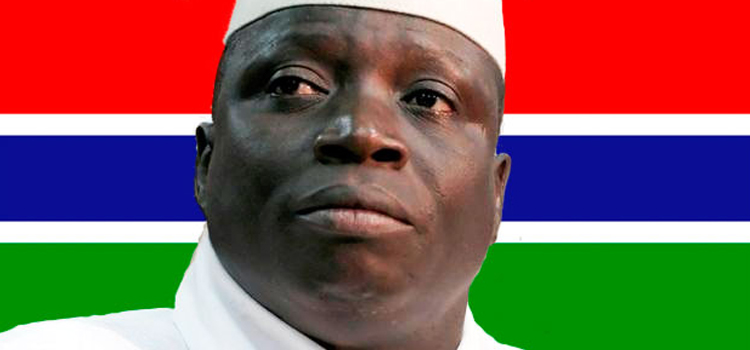More pressure is mounting on Gambian President Yahya Jammeh to release detained journalist Alhagie Abdoulie Ceesay.
On March 31, 2016, two US senate members wrote to President Jammeh to release Ceesay who has been in detention since July 17, 2015.
The letter from Richard Joseph Durbin, a senior United States Senator for Illinois and Patrick Joseph Leahy, Senator for Vermont, comes a month after MFWA and 36 other freedom of expression organisations from across Africa and the globe petitioned the African Commission on Human and People’s Rights and the UN Special Rapporteur on Freedom of Expression and Opinion to urge President Jammeh to release Ceesay.
The letter from Senators Durbin and Leahy which also mentioned the case of disappeared journalist Ebrima Manneh among others, said “in recent years we and others in the United States have written to you urging the release or accounting of Gambian journalist Ebrima Manneh, who was detained by National Intelligence Agency personnel in 2006 and not heard from again. While a full accounting of Mr. Manneh’s deeply troubling disappearance (and we fear death) has yet to be provided, we appreciate that you allowed a visit in 2014 by the United Nations Special Rapporteur. In a similar vein, we ask your help with the release of radio journalist Alagie Abdoulie Ceesay who has been held in Mile 2 Prison under questionable charges and harsh conditions since his arrest nearly a year ago.”
The Senators also noted that Ceesay’s arrest and detention is an indication of the poor press freedom and freedom of expression conditions in The Gambia. “Unfortunately, given the history of government harassment of Teranga FM, the charges and jailing of Mr. Ceesay seem more related to a troubling lack of press freedom in The Gambia and not based on any credible evidence of criminal wrong doing,” the Senators said.
Since Ceesay was detained over nine months ago, many organisations have on several occasions appealed to President Jammeh to ensure his release but nothing has been done about it.
On August 27 2015, the UN Human Rights Council’s Working Group on Arbitrary Detentions wrote to President Jammeh to explain the circumstances surrounding Ceesay’s detention. The government failed to respond to the Working Group even though the country had 60 days to respond (August 27-October 27, 2015).
At the 74th session of the Working Group on Arbitrary Detention on November 30-December 2015, it expressed concern about the sedition charge against Ceesay. “The crime of ‘sedition’ which is used to deny the enjoyment of freedoms and the Government should reconsider its interpretation of that crime.”
The Working Group noted that Ceesay’s detention is arbitrary.
“The Working Group requests the Government of The Gambia to take the necessary steps to remedy the situation of Mr. Ceesay. Taking into account all the circumstances of the case, the Working Group is of view that adequate remedy would be to immediately release Mr. Ceesay, to accord him an enforceable right to compensation and to ensure that freedom of opinion and expression is better protected,” the Working Group said.
The Gambia under President Jammeh has witnessed over 21 years of crack down on freedom of expression. Several journalists, human rights defenders and ordinary citizens have suffered arbitrary arrests and detentions, torture, intimidation etc. Many of these people have been forced to flee the country. In 2015, more than 17 persons reported to have been arbitrarily arrested and detained, threatened or physically attacked. There were also attempts to censor media organisations who are already practising strict self-censorship.
The MFWA is once again calling on President Jammeh to respect the several protocols and international treaties The Gambia has ratified. We are calling on ECOWAS, and the African Commission to urge President Yahya Jammeh to ensure the release of Ceesay and also to improve on the press freedom, freedom of expression and human rights conditions in the country.
